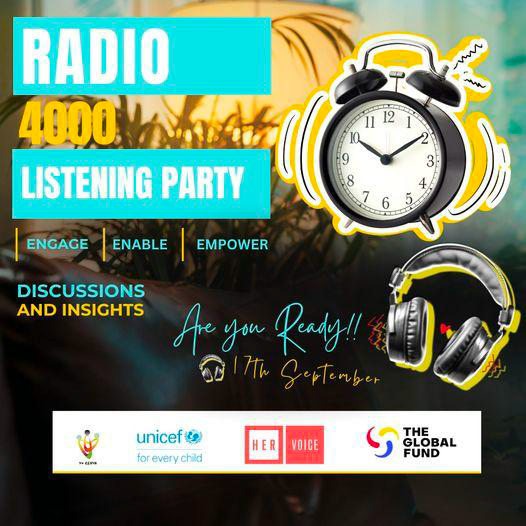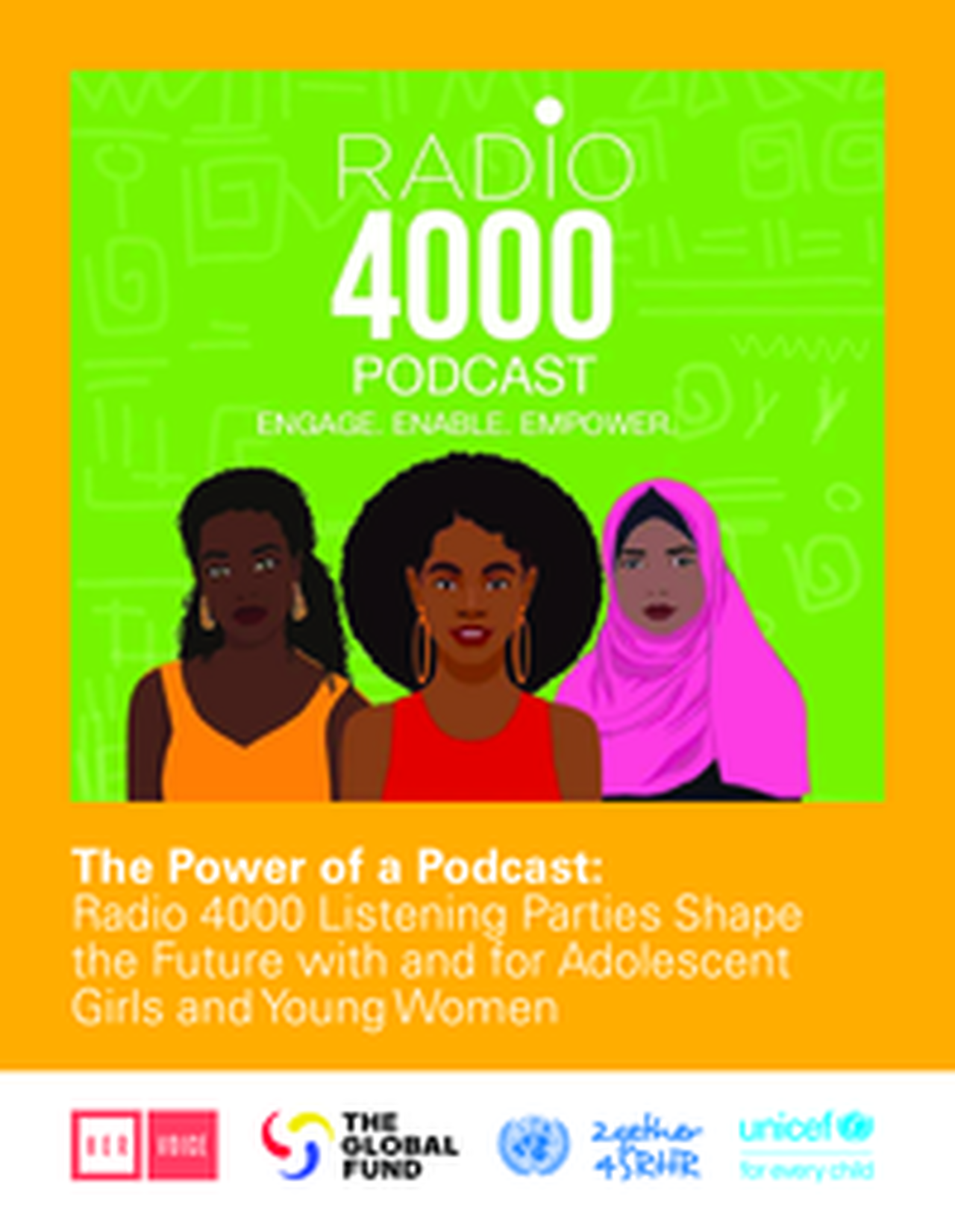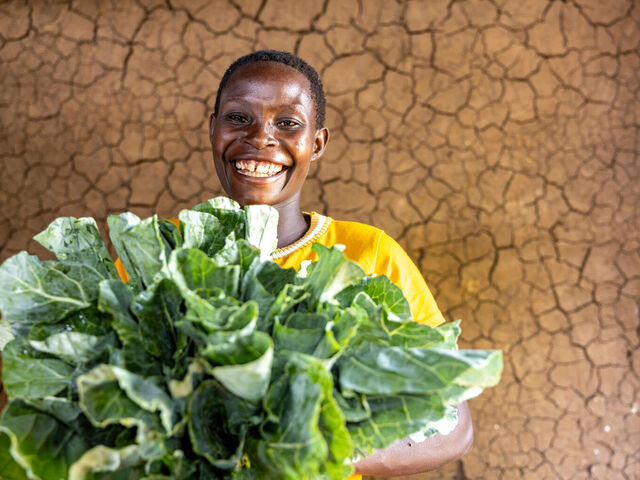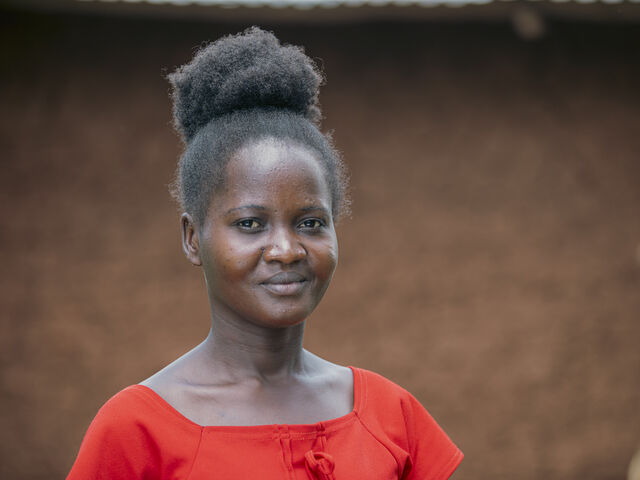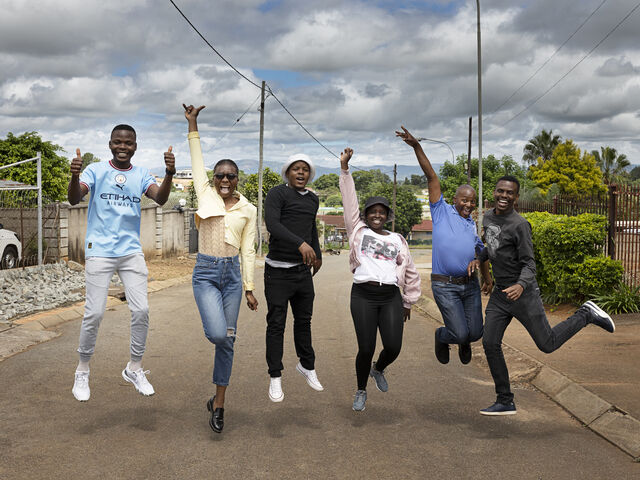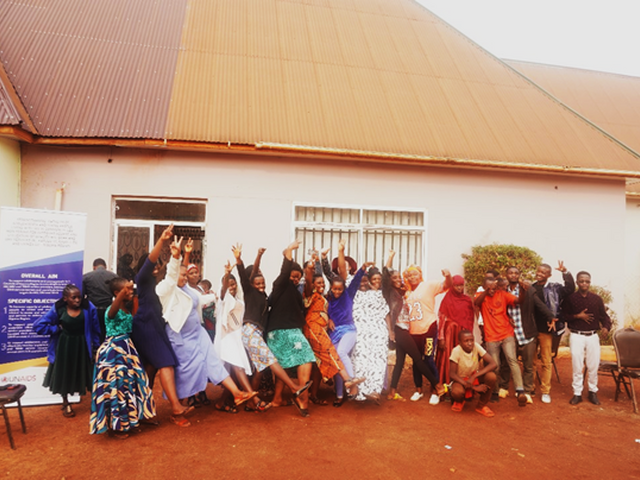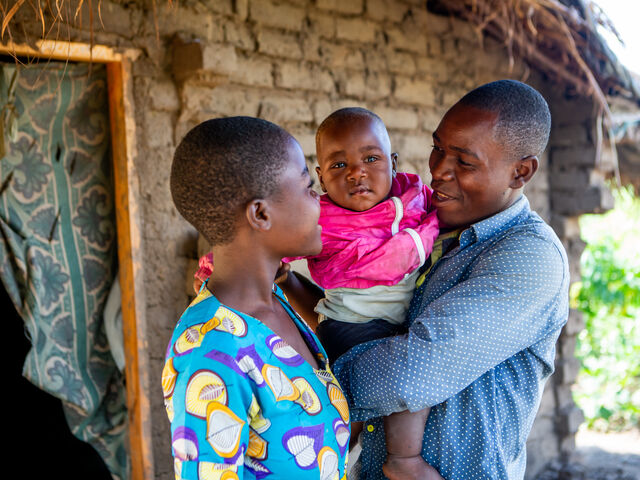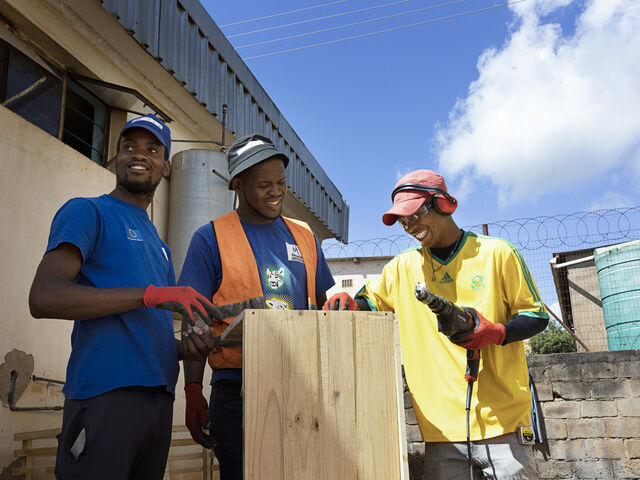The Power of a Podcast: Radio 4000 Listening Parties Shape the Future with and for Adolescent Girls and Young Women
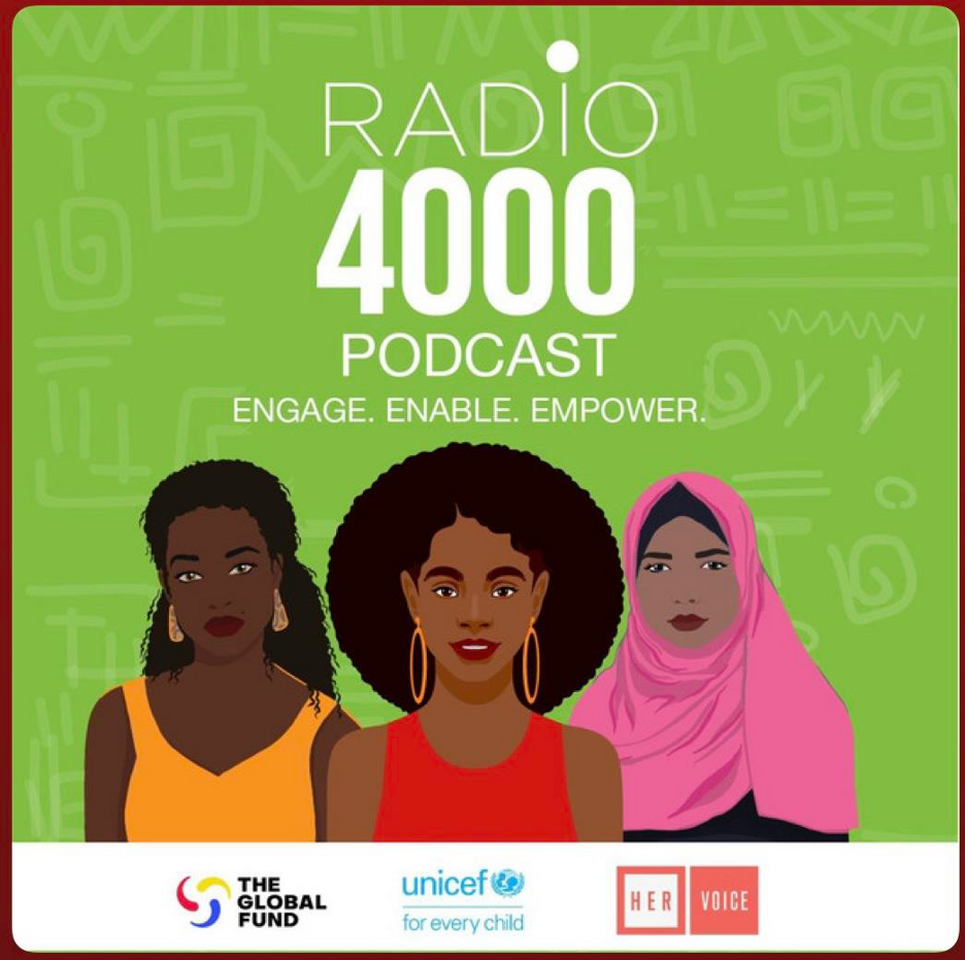
Podcasts have the potential to build connections. Listening parties in Botswana, Kenya, Namibia, South Africa and Zambia did that and more as they sparked conversations designed to contribute to improving HIV and sexual and reproductive health and rights (SRHR) programmes for adolescent girls and young women (AGYW).
Radio 4000 is a 10-episode podcast over two seasons on which technical experts, activists, and young people from across Eastern and Southern Africa share their insights and experiences on HIV, SRHR, relationships, health services, and young people’s leadership. Each episode provides practical solutions for the challenges facing AGYW.
While the podcast has a loyal following, HER Voice Fund, The Global Fund to Fight AIDS, Tuberculosis and Malaria, and UNICEF, with support from the Government of Sweden through 2gether 4 SRHR, identified an opportunity to use the podcast as a launchpad, bringing people together to jointly tackle tough issues. In 2024, AGYW (aged 15-24) accounted for 27% of all new HIV infections in Eastern and Southern Africa. Adolescent pregnancy also has far-reaching consequences for young mothers and their children in this region, where 20 per cent of girls become pregnant before the age of 20, representing on of the world's highest rates of adolescent pregnancy. Addressing the HIV epidemic and other sexual and reproductive health issues is critical for a generation of adolescents to thrive.
Listening parties gathered adolescents and young people, policy makers, U.N. agencies, funding and implementing partners, service providers, and civil society leaders to explore the podcast content, openly discuss sensitive issues, share their thoughts and experiences, and co-create solutions.
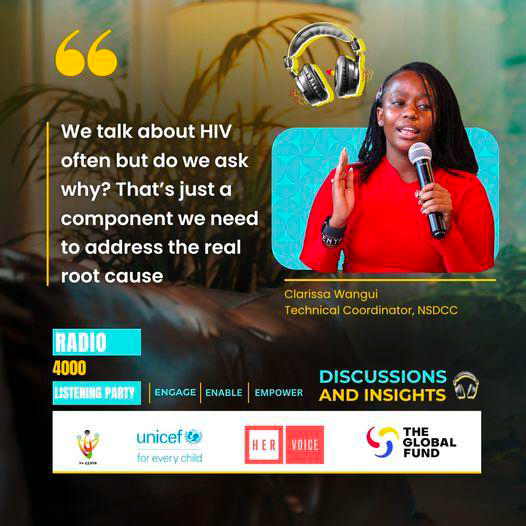
Each country chose episodes relevant to their context and used participatory methods to interact, reflect, and commit to action:
Botswana selected “Adolescent-friendly Health Services: What Works,” an episode that spotlights the experiences of adolescents and young people navigating health services in the region and offers strategies that can support effective service delivery. Stakeholders agreed on practical steps to improve the accessibility, quality, and impact of services, as well as more ambitious actions, such as expanding services to underserved areas, strengthening youth corners in clinics, fostering community engagement, and adopting a holistic one-stop-shop service model. The event highlighted the critical need for services that are co-designed with youth, respectful of their realities, and anchored in dignity and empathy.
“We thought we knew what we were doing, but this gathering helped us to identify the gaps.” (Mr. Balesang Mackhenzi, Ministry of Health, Botswana)
Young women took the lead at Kenya’s listening party, with “Beyond Participation: Young Women Lead,” an episode featuring young women’s leadership journeys. Participants noted the contributions Kenya’s youth-led organisations have made to the HIV response and committed to mentoring young women and supporting youth-led organisations to take on leadership and decision-making roles.
“We have received amazing opportunities for upskilling, and now is the time to put these lessons into practice. We need to be allowed to lead, manage resources, plan meetings and activities, and directly engage with resource holders.” (AGYW participant, Kenya)
The listening party in Namibia chose two episodes, beginning with “The Power of Peers,” an episode highlighting the crucial role peer supporters play in providing safe spaces, psychosocial support, and guidance on HIV prevention and treatment adherence. Participants agreed that peer-led initiatives should be expanded, especially to rural areas, and that peer supporters need career pathways. The pressure on AGYW to have relationships that heighten their risk of poor health and wellbeing was the topic of Namibia’s second episode, “Money and Relationship Dynamics.” Participants noted the need for programmes to include financial empowerment for AGYW and committed to better equipping parents and guardians with tools to effectively communicate with adolescents about healthy relationships.
“This podcast is not just a platform. It’s a movement of stories and ideas…A space that demands we center the lived experiences of AGYW.” (Selma Ndasilohenda Lyambo, Her Voice Fund Ambassador, Namibia).
Oral pre-exposure prophylaxis (PrEP) is an effective strategy to prevent HIV infection, but uptake has been low among AGYW at risk of HIV. The South Africa listening party focused on “PrEPping Adolescent Girls and Young Women,” an episode that presents challenges and offers strategies to generate demand and support the use of PrEP among AGYW. As participants considered how to incorporate PrEP into a comprehensive HIV prevention package, the idea that “PrEP is the new weave” emerged, symbolizing a shift toward positioning PrEP as part of a lifestyle rather than purely a biomedical intervention. Participants also explored what impactful PrEP awareness might look like for communities without access to digital media, generating valuable ideas for offline engagement strategies.
“We can’t keep using the same old methods and expect new results. Prevention programs must reflect real life, not just medical charts. Adolescent girls and young women want solutions that fit into their lifestyles, not just a pill.” (Report, South Africa listening party)
In Zambia, the listening party went back to the basics, choosing Episode 1, “Improving Lives of Adolescent Girls and Young women,” as their focus. The episode unpacks global guidance into practical steps that programme implementers can take to improve the quality and delivery of programmes for AGYW. Participants agreed to build greater equity, sustainability and impact through more collaborative, multi-sectoral partnerships, including engaging Members of Parliament.
Across the five countries listening parties were an inspiring event that created a community around a shared experience, provoked challenging yet constructive conversations, and fostered co-creation of real-time solutions. Programme implementers continue to demonstrate how listening parties are replicable across different contexts and can expand reach through partnerships and multi-platform distribution, such as schools, community radio or other digital platforms.
And the conversation continues. Participants are sharing updates, challenges, and successes as they implement action points focusing on policy gaps, service delivery challenges, stigma reduction strategies, advocacy and implementation of roadmaps, with clear roles and responsibilities for different stakeholders, especially AGYW.
RADIO 4000 amplified the voices of adolescent girls. Listening parties turned up the volume.
You can listen to Season 1 and 2 of Radio 4000 on all podcast platforms:
Linktree: https://linktr.ee/radio4000
Apple: https://podcasts.apple.com/us/...
Spotify: https://open.spotify.com/show/...
IHeart Radio: https://iheart.com/podcast/127...
Podcast Addict: https://podcastaddict.com/podc...
